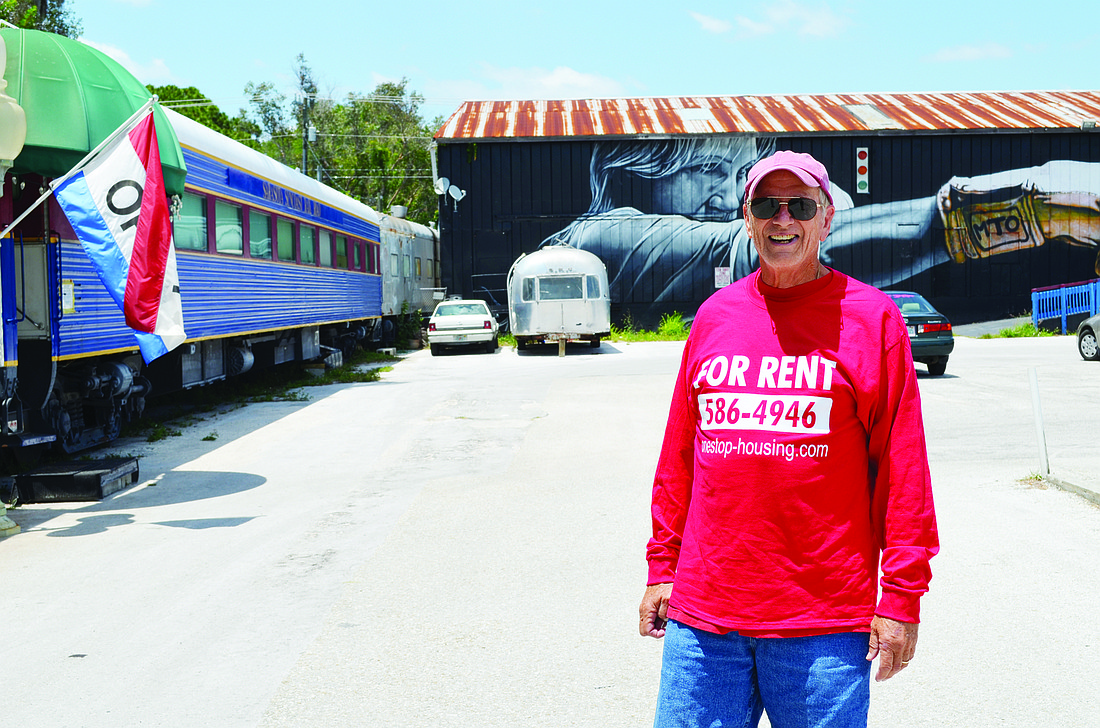- April 25, 2024
-
-
Loading

Loading

Harvey Vengroff is continuing to work toward establishing a 700- to 800-unit affordable residential complex on land adjacent to downtown Sarasota, even as it remains unclear whether the city will be amenable to his proposed project.
Vengroff owns 7.6 acres of property at 2211 Fruitville Road, currently the site of Bob’s Train restaurant. Last week, he submitted plans to the city for construction of a residential development on that land, a project he’s been pushing for nearly a decade.
Although he believes the affordable housing stock in the city is sorely lacking — a point many city officials have echoed recently — his motivations for proceeding with the project are not entirely altruistic. Vengroff, who owns more than 1,500 residential units within Sarasota and Manatee counties, said the financial details of an affordable housing project have to make sense for private development — which necessitates the higher density he’s requesting.
When it comes to filling those spaces — priced between $600 and $900 for efficiencies and up to three-bedroom units — he’s confident residents are in need of the type of housing he’s planning.
“We're 100% full,” Vengroff said of his other residential properties. “We have waiting lists through June, so there is demand for it.”
That density wouldn’t come without approval from the city, which remains Vengroff’s biggest hurdle. One point in his favor is that the City Commission has repeatedly stressed the need for more affordable housing in recent months. Last year, the board approved a density bonus that allows for 75-unit-per-acre residential developments in the Rosemary District, a change city officials have praised.
To facilitate the development, he’d have to receive a comprehensive plan amendment allowing a density of 100 units per acre on his land, located near the intersection of Fruitville Road and Lime Avenue. Currently, there is no zoning designation in the city of Sarasota that allows for residential developments with such a high density.
According to David Smith, the city’s director of planning and development, there are at least two options for creating the density that Vengroff needs. The city could create an overlay district, similar to the one in the Rosemary District, to provide the density bonus to all land in a certain area. Or, the city could create a new zoning designation that confers those rights to developers.
Either way, Vengroff is in for a lengthy process that necessitates several phases of public input. He’s slated to go before the city’s Development Review Committee this summer and hold a public workshop on the project in August. A formal application for the comprehensive plan amendment would be due later in August, at which point it would go to the Planning Board, City Commission and state for review.
Vice Mayor Susan Chapman has been one of the loudest voices calling for more affordable housing within the city. She declined to comment on specifics of this proposal, but has expressed skepticism about Vengroff’s earlier complaints that the city puts up too many adminstrative obstacles to the creation of affordable housing — saying that fire and safety standards are important checks on these types of developments.
Vengroff admits the pace at which his project advances — if it advances at all — is in the hands of city officials.
“If this goes well, it'll be a year,” Vengroff said. “If somebody wants to put it on the back burner, it would be longer.”
Vengroff has also consulted with the city’s Urban Design Studio to get feedback on his project. The group, tasked with producing a new form-based zoning code for the city, said the site Vengroff has targeted is a good fit for affordable housing due to its proximity to downtown and public transit.
Still, there are challenges: The Urban Design Studio plans to come forward with its new code toward the beginning of next year, the same time Vengroff would be going before the City Commission. Under that new code, the Urban Design Studio hopes to eliminate the need for overlay districts by creating built-in incentives that allow for density bonuses. Even if everything breaks right, by the time Vengroff’s amendment is processed, it could be rendered useless.
Although the process has just begun, Vengroff has already tried to discourage the city from making modifications to his proposal — setting the stage for a possible clash between the two parties.
“Mr. Vengroff is committed to building affordable housing that does not require public subsidy,” Vengroff’s development application reads. “Therefore, every restriction or added requirement will result in an increase in the rent.”